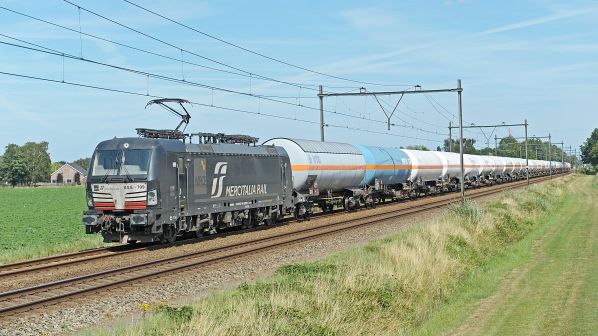EUROPEAN railway associations are calling on the European Commission (EC) and European Union (EU) Member States to come up with a strategy to support operators and infrastructure managers as well as the wider railway industry to combat the rising cost of energy in Europe.
In a statement, the Community of European Railways and Infrastructure Companies (CER) and the European Rail Freight Association (ERFA) state that rail’s modal share “is at serious risk” due to energy price movements. The associations argue that action is necessary to protect the targets for modal shift enshrined in the EC’s Sustainable and Smart Mobility Strategy and call for an uninterrupted and affordable supply of energy for rail transport.
This comes as European Union energy ministers convene for a special meeting in Brussels on September 9.
CER states that energy accounts for 10-20% of operators’ and infrastructure managers’ costs and that traction energy costs have doubled in 2022 compared with 2021, with some countries “even experiencing a 10-fold price increase.”
“Railway operators will not be able to maintain their ticket prices and shipping rates unless support measures such as price caps for energy and state aid are introduced,” the association says. “The policymakers should adopt a multimodal approach in support measures and avoid competition distortion between modes of transport.”
ERFA says the impact of dramatically increasing energy prices has the potential to not only reverse modal shift but also to fundamentally change the composition of the European rail freight sector.
“Many smaller and medium-sized operators are at risk of leaving markets or even bankruptcy depending on the evolution of energy charging policies,” ERFA says. “It is essential that measures are taken which support rail freight and ensure 20 years of market opening is not undermined.”
Industry
Germany’s Railway Industry Association (VDB), which represents more than 210 companies, has also called for “practical and rapid measures” to combat the energy crisis and to stop rail industry SMEs from going out of business before the end of the year.
“Drastically higher energy costs, sometimes galloping material costs and supply chain bottlenecks - this massively threatens the substance of the railway industry,” says VDB managing director, Dr Ben Möbius. “Politicians are called upon to quickly find effective emergency instruments so that we do not lose companies. Europe needs resilient industries of the future.”
CER executive director, Mr Alberto Mazzola, says that rail should be identified as a “strategic service that should be prioritised,” arguing that getting more freight and passengers on rail will improve the EU’s energy balance. “This is important in the current energy crisis to help lower the EU’s energy dependency on imported fossil fuels,” he says.
ERFA says that infrastructure managers are passing on increased costs to their customers, and that there is a “real risk” of market consolidation being triggered.
“ERFA strongly supports a cap on energy prices for rail freight and the recognition of rail freight as a strategic service,” says ERFA secretary general, Mr Conor Feighan. “It is now necessary that the European Commission includes these points in expected emergency measures to tackle increasing energy bills.”
“Rail transport is completely electric and e-mobility which is made in Europe paves the way for more climate protection,” Möbius says. “But we must now protect the industrial structures that Europe needs for the future.”

